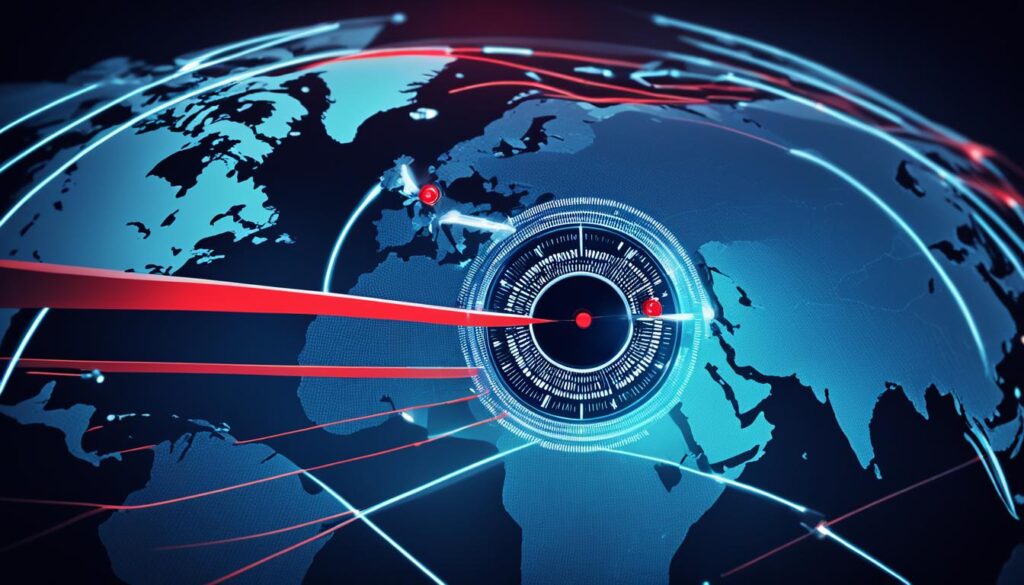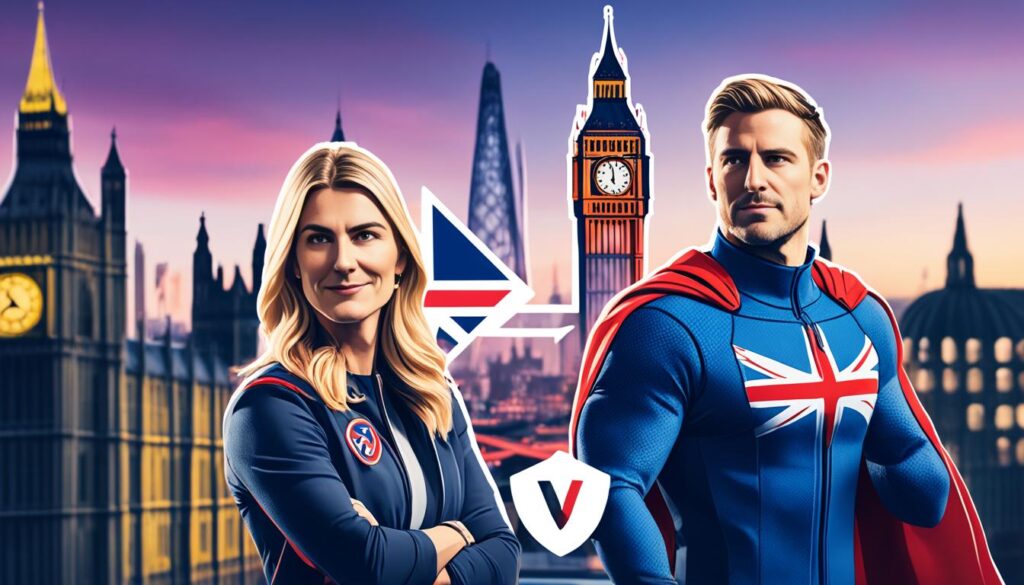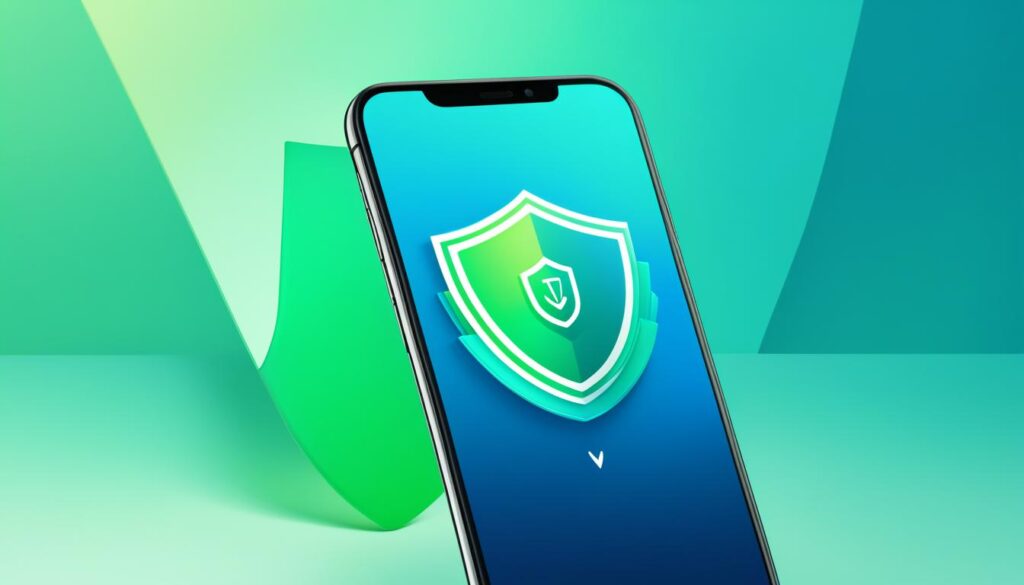The digital world is always changing, and the way VPNs and government surveillance interact is getting more complicated. We’ll look into how VPNs keep your online data safe from prying eyes. But then, we’ll see how governments try to keep an eye on you despite these protective measures.
Many governments say they are watching for our safety, but their acts can limit our free speech. They also control what we see and share online. To fight this, VPNs have become key in keeping our internet freedom, protecting social media censorship, and preserving the right to share our art and thoughts freely.
We will discuss the legal aspects and possible risks of using VPNs. It’s important to know how both governments and VPNs affect our online privacy. This knowledge helps us stand up for free speech and internet freedom.
Key Takeaways
- VPNs encrypt internet traffic and mask IP addresses to protect online privacy and bypass censorship.
- Governments are expanding their surveillance capabilities, leading to increased censorship and regulation of online content.
- VPNs play a crucial role in safeguarding internet freedom, free speech, and the free exchange of ideas.
- Understanding the legal considerations and risks associated with VPN usage is important for responsible and ethical use.
- Combining VPNs with other privacy tools can further enhance online security and anonymity.
What is a VPN and How Does it Work?
A virtual private network (VPN) keeps your online data safe. It creates a secure, encrypted path between your device and the internet. This guards your online actions from strangers like government, ISPs, and other snoops.
Encrypting Internet Traffic
A VPN scrambles your internet data, making it unreadable for anyone trying to watch. This encryption ensures your online moves are hidden from censorship, government rules, and limits on website access.
Masking IP Addresses
Along with data encryption, a VPN hides your IP address. This is your device’s unique internet ID. When you’re online, the VPN swaps your real IP with one from its servers. This step makes it hard for others to follow your online steps or know where you are.
Bypassing Censorship and Geo-restrictions
VPNs also let you get around online blockers and access restricted content. If a website isn’t available in your area, for any reason, connecting to a VPN server in a different place can help. This way, you can speak your mind freely and get to know more.
Government Surveillance Capabilities
Our lives on the internet are more connected than ever. Governments worldwide now can watch and follow what we do online. We are facing issues like censorship and limited internet freedom because of this.
Tracking Online Activities
Internet service providers and social media platforms share our data with governments. They use special techniques to watch our online moves, like browser fingerprinting. This means your online activities are not hidden, even if you use a VPN.
Accessing User Data from Service Providers
VPN encryption and IP masking do not always keep your online actions secret from governments. They often ask for court orders or use legal ways to get your data from service providers. This makes the privacy and security VPNs promise less effective.
Government Surveillance Capabilities |
Tracking Online Activities |
Accessing User Data |
|---|---|---|
Governments can monitor and track your online activities using tools such as browser fingerprinting and spyware. |
They get our online data from companies like internet service providers and social media. This lets them keep a close eye on everything we do online. |
Even if you use a VPN, governments may try to get your online data using court orders or other legal means against service providers. |
Can the Government Track You While Using a VPN?
A virtual private network (VPN) makes your online activities more private and secure. It hides your IP address and encrypts your internet traffic. However, it doesn’t ensure complete anonymity. The government can ask for your data if they have a court order. This can include your connection logs or IP addresses. How well a VPN works to avoid government tracking depends on various factors. These include the VPN provider’s policy on storing data, where they are based, and if they cooperate with authorities.
Choosing the right VPN is key to keeping your online actions private. You should pick a VPN service known for its strong stance on user privacy and security. It’s important to opt for services with strict or no logging rules and are based in areas supporting internet freedom and free speech. Doing your homework before choosing a VPN can help keep your internet activity safe from possible government regulation.
VPNs can help a lot with privacy, but they aren’t foolproof against well-aimed government surveillance. It’s wise to stay alert, use other privacy tools, and keep up with changes in internet censorship and political censorship. These steps are crucial for protecting your digital rights and artistic expression.
The Role of VPNs in Protecting Privacy
Our online privacy is more important today than ever. Virtual private networks (VPNs) are key in keeping our identity safe and beating online restrictions. They give us the ability to explore the internet freely and safely.
Maintaining Anonymity Online
VPNs hide our internet movements and change our online identity. They make a safe, secret path between our devices and the internet. This keeps our online actions private, so it’s hard for anyone to watch what we do. With a VPN, we can browse online, chat, and see things without worrying about strangers keeping an eye on us.
Evading Censorship
Today, many governments try to control what we see online. This includes blocking information, art, and free speech. VPNs help us go around these limitations. They open doors to information and content that might be off-limits where we live. This not only lets us exercise our rights but also enriches the digital world, making it a place where creativity and ideas can flourish.
VPNs help us protect our online secrets and rights to share and learn. Their role in guarding our basic freedoms online is critical. As online life keeps changing, VPNs will play an even bigger part in ensuring we stay free and anonymous.
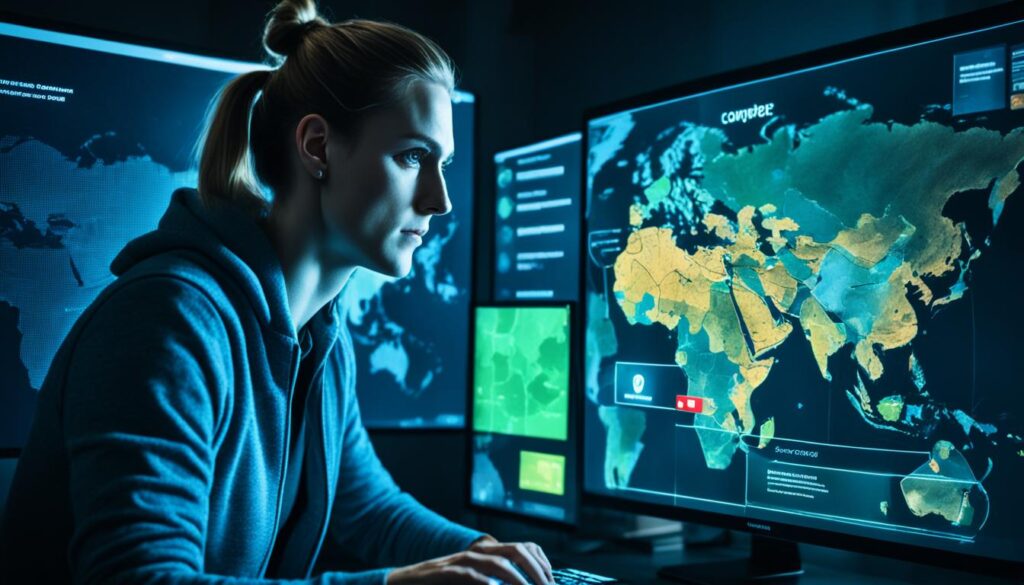
Censorship and Free Speech
In today’s world, government regulation and content moderation are growing on the internet. The fight for free speech and artistic expression is more important than ever. Countries are getting stricter on online content in the name of national security or public order. Because of this, they often block or remove websites, social media, and digital expression. This limits our ability to freely share thoughts and weakens press freedom.
Government Regulation of Online Content
Worldwide, governments are getting more involved in stopping political dissent or artistic expression. They are tightening the rules on what can be said online. This stops people and groups from speaking out or sharing ideas that might be seen as too bold or against the government.
Artistic Expression and Press Freedom
Government censorship does more than just affect politics. It also threatens artistic expression and press freedom. Authors, artists, and reporters find themselves under pressure. Their work might challenge what’s usual or reveal hard truths. If this continues, our cultural variety and the truth from journalists could be lost.
Social Media Censorship
As social media grows, new problems appear in content moderation. Platforms are criticized for being too strict or unfair in their rules. People are worried about how much control these platforms have over what we see and discuss. There’s also the fear of political censorship.
Choosing a Reliable VPN Provider
Looking for a good virtual private network (VPN) provider means focusing on trust and openness. A VPN service must promise not to record anything about your online actions. This is key to keeping your digital life private from both government spying and content blocks.
No-Log Policies
When you pick a VPN, check how they handle your data. A solid no-log policy means the VPN doesn’t keep track of what you do online. This keeps you hidden and stops your data from being seen even if the government legally asks for it.
Jurisdiction and Data Retention Laws
Where a VPN company is based affects how well it can protect you. This is because some places have rules that say the VPN must keep your info for a while. To get the best online privacy, choose a VPN from a place that values keeping your data safe and doesn’t often hand it over to governments.
Third-Party Audits and Transparency
The best VPNs are open about how they work and let others check them out. They have outside experts review if they really do what they say. This makes sure they’re not spying on you or blocking what you can see online because the government told them to.
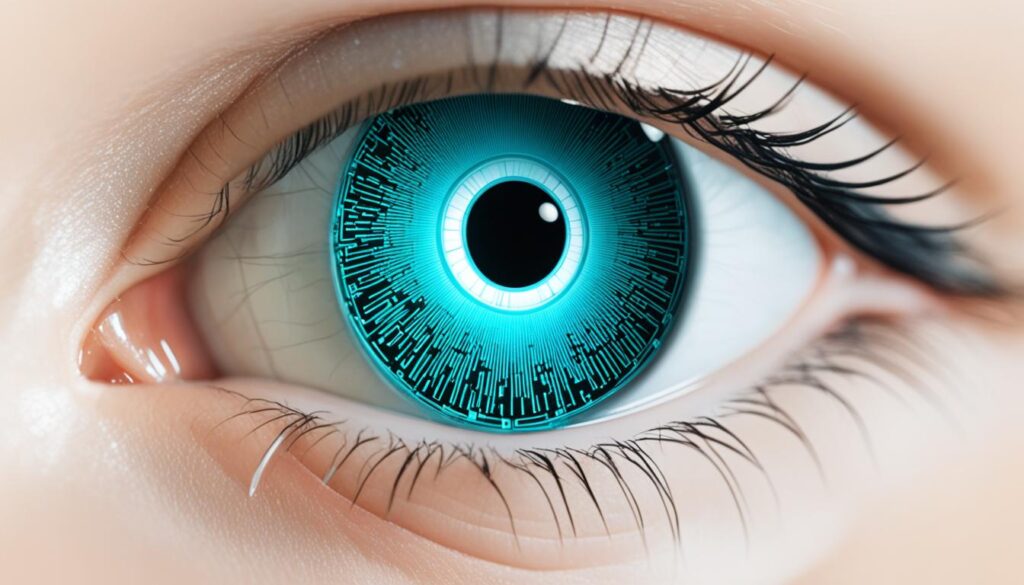
Checking each VPN’s policies and how they protect your privacy helps you make a smart choice. This way, you can find a VPN service that keeps your online world free from meddling, lets you speak and create freely, and reduces the risk of running into censorship issues.
Combining VPNs with Other Privacy Tools
Virtual private networks (VPNs) keep your online activity safe and help bypass censorship. You can make them even more effective by adding other tools. This way, you improve your digital and internet freedom.
Tor Browser
The Tor browser adds another layer of anonymity to your online life. It sends your internet traffic through a network of volunteer relays using onion routing. This makes it hard for third parties to monitor you. Together with a VPN, the Tor browser offers strong protection against government surveillance and censorship.
Encrypted Messaging Apps
Signal and similar encrypted messaging apps let you have private chats. They use end-to-end encryption. So, even if someone gets access to your device, your messages stay secret. Pairing these apps with a VPN is great for protecting the privacy of your conversations. This is vital for those needing press freedom, artistic expression, or dealing with political censorship.
Privacy Tool |
Key Benefit |
|---|---|
Tor Browser |
Provides an extra layer of anonymity by directing internet traffic through a network of volunteer relays. |
Encrypted Messaging Apps |
Use strong encryption to keep digital conversations private, even if someone accesses the user’s device. |
Mixing VPNs with these privacy tools help better secure your online security and freedom. It protects against government regulation, content moderation, and censorship.
Legal Considerations and Risks
Virtual private networks (VPNs) have become vital for online privacy and avoiding censorship. But, using them needs careful thinking. VPNs might not be allowed or need special rules in certain places. For instance, countries like Belarus, Iraq, and North Korea might not let you use a VPN.
VPN Legality Around the World
Before using a VPN, it’s wise to check your local laws. In China, the government controls VPNs tightly and censors their content. On the other hand, the US and many parts of Europe allow VPNs. Still, you can’t use them for illegal censorship, violating free speech rights, or dodging government regulation.
Potential Consequences of Illegal Activities
VPNs can protect your online privacy well. But, they won’t hide you if you break the law. Governments can still track and prosecute crimes. For example, if VPNs are used for internet freedom, social media censorship, artistic expression, press freedom, book banning, or political censorship. So, always use a VPN within the laws of your area.
Conclusion
We’ve looked closely at how VPNs work against government surveillance. Governments can watch what you do online easily. But VPNs are a big help in keeping your privacy safe and getting around control.
It’s very important to have strong privacy and freedom online. VPNs are key in standing up to growing efforts to control and check content. They let us dodge censorship, keep our tracks hidden, and support free speech and press freedom. But, using them the right way matters a lot to stay out of trouble.
As governments watch more online, VPNs will become even more important to protect our rights. By knowing what’s out there, choosing carefully, and using privacy tech well, we can make the internet a better place. A place where free speech, creativity, and the sharing of info are respected.

